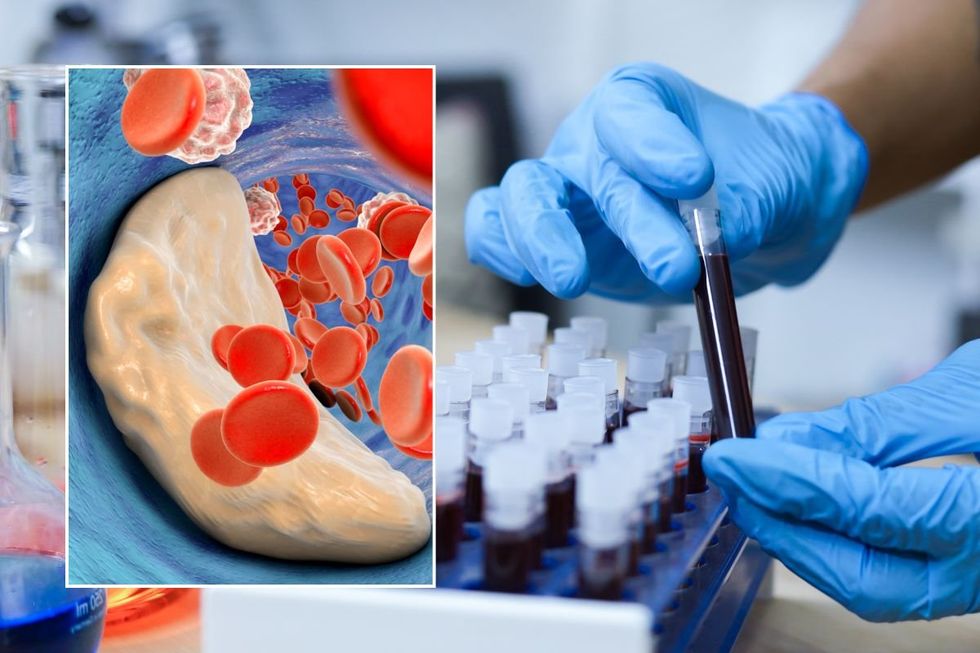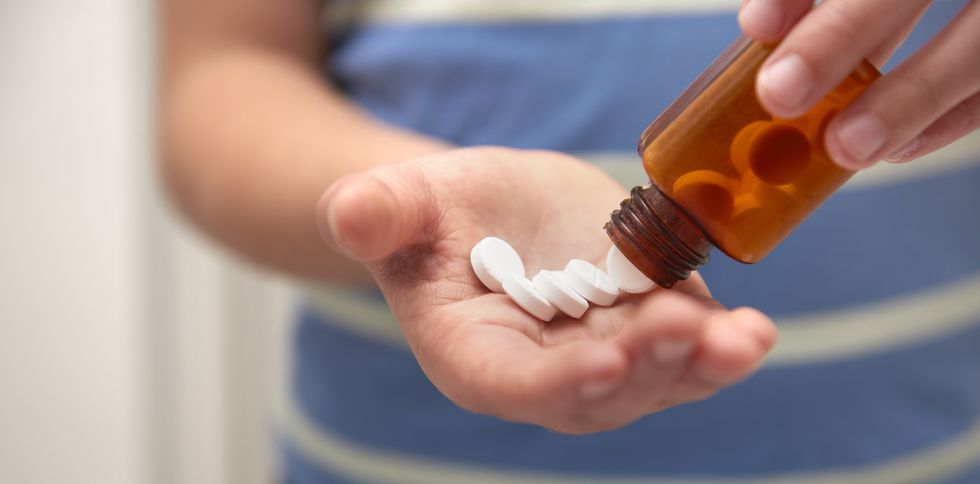Revolutionary cholesterol treatment slashes levels by nearly 50% - offering hope to millions who can't tolerate statins

The therapy controls cholesterol levels without producing unpleasant side effects
Don't Miss
Most Read
Scientists have developed a breakthrough therapy that could revolutionise the treatment of high cholesterol, which currently affects approximately half of adults in the UK.
When too much of the waxy substance builds up in the blood, it clogs the arteries and puts the heart at serious risk.
This condition, called hypercholesterolemia, currently affects millions of people worldwide.
But thankfully, researchers from the University of Barcelona and the University of Oregon have found a new way to control cholesterol levels using special molecules called polypurine hairpins.
TRENDING
Stories
Videos
Your Say

The therapy could stop cholesterol from sticking to the artery walls
|GETTY
These tiny tools help our cells mop up more of the bad cholesterol floating around in our bloodstream, stopping it from sticking to artery walls.
The breakthrough works by targeting a protein called PCSK9, which normally stops our cells from clearing cholesterol from the blood.
The Barcelona and Oregon teams have developed polypurine hairpins (PPRHs) that essentially switch off this troublesome protein.
When PCSK9 is active, it reduces the number of receptors on our cells that grab onto bad cholesterol.
By blocking PCSK9, the new treatment allows more of these receptors to do their job.
The research, published in Biochemical Pharmacology, was led by professors Carles J. Ciudad and Verònica Noé from Barcelona, working with Nathalie Pamir from Oregon.
In tests with mice that had been genetically modified to carry the human PCSK9 gene, a single injection of the treatment cut plasma PCSK9 levels in half and reduced cholesterol by 47 per cent within three days.
LATEST DEVELOPMENTS
Professor Verònica Noé shared the remarkable findings from their lab work: "HpE12 decreases PCSK9 RNA levels by 74 per cent and protein levels by 87 per cent."
The team tested two specific polypurine hairpins, called HpE9 and HpE12, which work by binding to precise spots on the PCSK9 gene.
This stops the gene from producing the protein that interferes with cholesterol removal.
The discovery offers hope to people who struggle with statins, as the Barcelona team pointed out that their polypurine hairpin approach wouldn't cause the muscle pain and weakness that many patients experience with traditional cholesterol medications.
"PPRHs, especially HpE12, are therapeutic oligonucleotides with many advantages, including low cost of synthesis, stability and lack of immunogenicity," the experts concluded.

The discovery offers hope to people who struggle with statins
|GETTY
The treatment is also much cheaper to produce than current alternatives like monoclonal antibodies.
It's stable, which means it could be stored more easily, and it doesn't trigger immune reactions.
For the millions who can't tolerate statins or need additional cholesterol control, this Barcelona-Oregon breakthrough offers real hope for protecting their hearts without the usual side effects.
Our Standards: The GB News Editorial Charter











